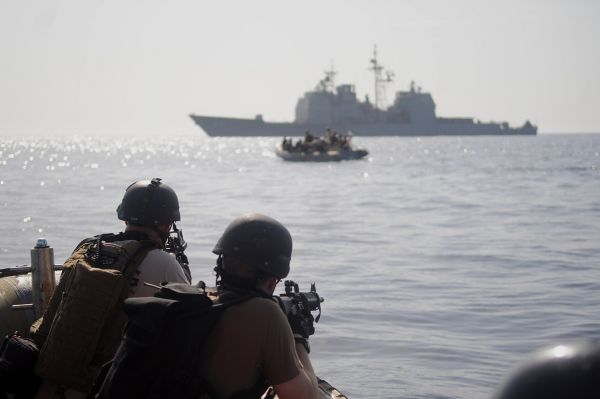Maritime security jobs are one way for the ex-military to consider working in a relevant field.
The same is true of people that have never served in the U.S. Armed Forces as prior military experience is not necessary for every maritime job.
Regardless of your situation, maritime security jobs are a terrific way to serve the government as a private contractor.
Learn about the five most common maritime security jobs and what it takes to get into the industry.
Related Article: Which Branch Of The Military Should I Join? 7 Things To Consider
5 Common Maritime Security Jobs
Maritime Security (MARSEC) is a broad term that is traditionally broken down into four primary categories:
1) National Security, 2) Marine Environments, 3) Economic Development, and 4) Human Security.
Maritime security consultants have important responsibilities and often earn high salaries because of their unconventional work.
These types of consultants are classified as private contractors.
It means they may have jobs assigned by the federal government yet can carry out their own methods to obtain the desired results.
Related Article – Top 14 Private Military Companies
Here are the five most common maritime security jobs for 2020:
1. Anti-Piracy
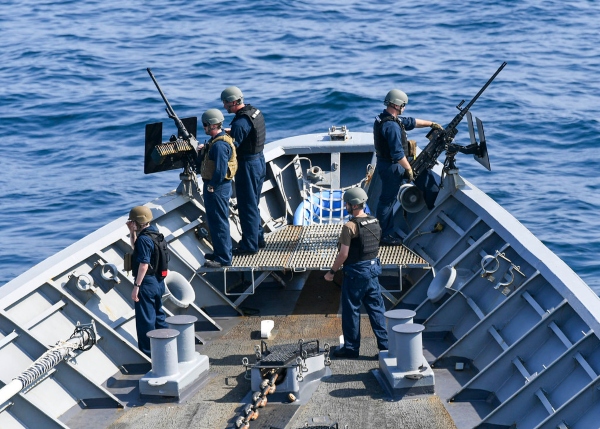
Anti-piracy is a badly needed regulation force out on the open sea.
Recent movies like “Captain Phillips” demonstrated that piracy is still alive and well, particularly in places like Somalia.
Working anti-piracy maritime security is a rewarding opportunity to “police” the sea and keep it safe for merchant ships.
Merchant ships depend on anti-piracy maritime security to pass through places like the Maritime Security Patrol Area (MSPA).
The patrol zone exists in the Gulf of Aden and Guardafui Channel, a narrow corridor between Somalia and Yemen.
It is considered one of the most dangerous places in the world to pass yet the recent emphasis on adding private security contractors has greatly reduced ship hijackings.
Related Article – CIA Special Activities Division (SAD)
The Maritime Security Patrol Area was created in 2008 to provide a multinational coalition naval task force that detours piracy.
A vast majority of the maritime security employed here are private contractors that work for companies such as:
- Hart Maritime
- Seagull Maritime Security
- MUSC
- Solace Global
- Securewest International
- Neptune Maritime Security
Job Requirements
Maritime security anti-piracy teams generally consist of a team leader and at least two other guards.
Many of the private contractors are former military, though others have prior experience in law enforcement.
Teams are designed to provide non-lethal ship security of hostile regions like the Gulf of Aden.
Placing maritime security in dangerous spots acts as a deterrence and is a welcomed sight for incoming merchant ships.
Maritime security anti-piracy ships have equipment like long-range acoustic devices (LRAD) to ward off any potential attacks.
Depending on where you are placed in the sea, anti-piracy private contractors can earn between $300 to $800 per day.
The most dangerous (yet high paying places) are along the coasts of Africa and India.
Related Article – 9 Common Private Military Contractor Jobs
2. Static Security
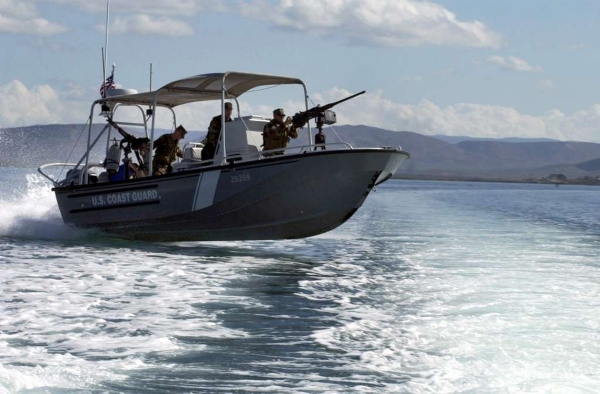
Maritime static security jobs have similarities to anti-piracy contractors with a few differences.
Static security, by its definition, is security that is provided in a fixed position or location.
However, there are situations where static security is also mobile like when the security is accomplished during patrols.
Regardless if you work in a stationary or mobile position, static security is important to maritime operations.
Static security private contractors have an important responsibility along with anti-piracy contractors to keep the global waters safe.
The U.S. government relies on static security contractors to protect important people and infrastructure.
Ships are the most common type of infrastructure that static security is assigned to protect, though the job duties can get quite detailed.
Private military contractors receive great pay yet are often assigned to dangerous and volatile places in the world.
Yet these places must get patroled to protect valuable, costly American assets.
While most private contractors do not see combat, there are always opportunities for conflict in international waters.
Related Article – The Ultimate Guide To Becoming A Private Military Contractor
Job Requirements
Port security and protecting ships are the two most commonly assigned places for static security.
Private military contractors have comparable duties and job requirements to someone in the military, such as military police.
Static security contractors are expected to remain very disciplined, organized, and observant.
Private military contractors are well trained and can handle a variety of situations, many of which are potentially dangerous.
However, most of the work static security does is preventative and keeps bad guys from destroying or stealing vital infrastructure, as opposed to trying to capture them.
The best shift for a static security officer is when there are no incidents, and operations carry on successfully.
Though the hours are often long and tedious, you can expect great pay!
Static security private contractors receive average earnings between $500-$750 per day.
3. Security Consultant
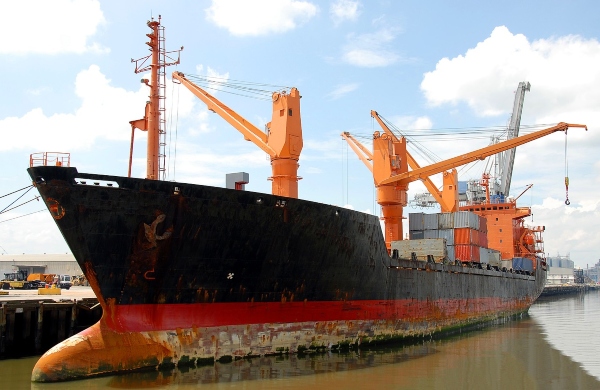
Security consultants serve maritime security in a more behind the scenes type of role.
Static security and anti-piracy security are more hands-on, direct, militarized style security compared to security consultants.
Therefore, it is possible to receive a high paying job as a security consultant without previous military or law enforcement experience.
However, both go a long way in validating you as a qualified expert in security.
Security consultants develop strategies and operational security plans for private companies like merchant ships.
Related Article: Tattoo Policy For Each Military Branch
Consultants are able to mitigate risks associated with shipping and port operations around the world because of their expertise in the matter.
Therefore, maritime security consultants outline plans that explain the security measures and procedures needed to keep precious cargo and personnel safe at sea.
The important job is rewarded financially even though it is hard to find accurate figures of pay since most of the work done by private contractors is secretive.
However, many reports place starting salaries for security consultants around $80,000 per year, with numerous opportunities to earn at least six figures for the right company.
Job Requirements
While it is possible to work as a security consultant without military experience having some type of security background goes a long way.
Maritime security consultants are considered experts in the matter and thus are paid a lot of money for their insights.
Massive corporations aren’t going to pay just any average Joe to give them advice on protecting their assets.
Security consultants are also experts on sea transportation and daily operations at a port.
They understand the intricate nature of the line of work, and therefore implement a plan that is safe and effective.
Security consultants are also excellent communicators, have fantastic attention to detail, and are able to organize their thoughts and ideas clearly.
Ultimately, maritime security consultants safeguard against acts of unlawful interference regarding transport and offshore facilities.
A security and vulnerability assessment identifies and describes the main security threats facing port facilities and vessels.
4. Logistics
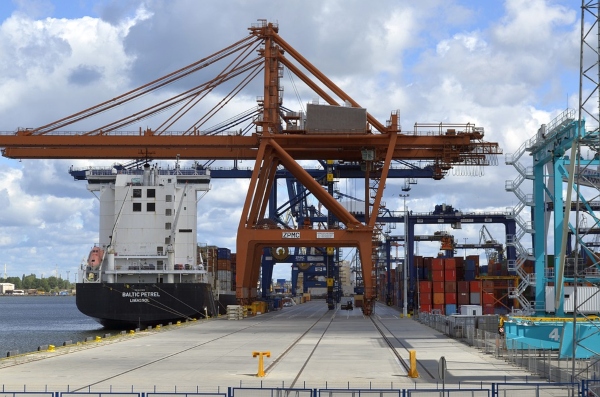
Related Article – Air Force Security Forces (3P0X1): Career Details
Maritime logistics is a broad term that can represent a number of different jobs.
When it comes to private contract work logistics often means jobs that have to do with coordinating people, equipment, vessels, facilities, or management of supplies.
Logistics is also used to define maritime security jobs that have to do with the transportation of people or goods.
Ships often carry millions of dollars worth of cargo that needs to remain in good condition throughout the duration of a trip.
Supplies and personnel are valuable and need to get protected not only from pirates but also in ways goods might get damaged during transport.
Maritime logistics private contractors work behind the scenes to make sure supplies are loaded and unloaded from a vessel properly.
There is also work that goes into how to plan and organize shipments in the most practical and effective manner.
Lastly, maritime logistics involves maintenance and construction jobs that are needed to keep port facilities, ships, and transport equipment in full working order.
Job Requirements
The job requirements of logistics depend largely on the specific assignment.
Private contractors may handle anything from warehouse receiving and shipments to maintenance or transportation.
Therefore, it is difficult to provide accurate earnings for such a diverse job field.
Regardless, private contractors traditionally make very good money compared to their military counterparts which are why many ex-military consider PMC jobs.
Maritime logistics jobs have demanding work schedules and are demanding from a labor perspective.
Related Article – Marine Corps Logistics/Embarkation Specialist (MOS 0431): Career Details
5. Vessel Recovery
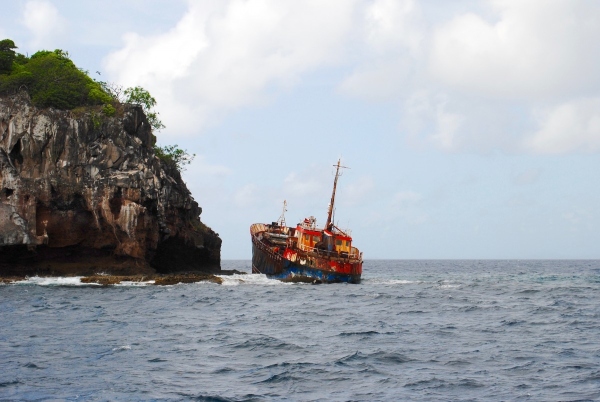
Maritime vessel recovery jobs are slightly different from salvage recovery.
Vessel recovery services involve using methods and equipment to recover stuck, damaged, or destroyed ships from international waters.
Salvage recovery is dictated more based on federal regulations since it takes place on waters owned by the United States, or inland lakes and rivers that border more than one state.
Regardless, maritime vessel recovery jobs involve the tedious and safe removal of damaged property from the environment.
It is like an ocean version of a towing service, with great care utilized to protect human lives, property, and the environment.
Related Article: 20 Reasons to Join the Military (and 7 reasons not to)
Job Requirements
Vessel recovery services assist ships that have blown off its mooring, sank at the dock, or ran aground.
Recovery specialties utilize specialized equipment and training to safely remove or salvage damaged vessels from the water.
Private contractors are hired on vessel recovery teams as operators and rig handlers.
Rigging equipment is needed to tow vessels from the sea and out of harm’s way.
Maritime security vessel recovery jobs are comparable to logistics in that most of the jobs are labor-heavy.
Vessel recovery contract work is among the lowest-paying of maritime security jobs yet still rewarding.
Some companies will pay decent money for these services since the work is highly specialized, and at times risky or dangerous.
Conclusion
Maritime security jobs are important to keep international waters safe from pirate attacks and other security threats.
The most common maritime security jobs include anti-piracy, static security, security consulting, logistics, and vessel recovery.
If you are stuck on what to do with your career next, why not consider a private military contractor job in the sea?
Related Article – 20 Best Jobs For Veterans
- Ikon Pass Military Discount: Learn How To Save Big - January 31, 2025
- RTIC Military Discount: Find Out How To Save Big on Gear - January 30, 2025
- Traeger Military Discount: Learn How To Save Big on Smokers - January 28, 2025

